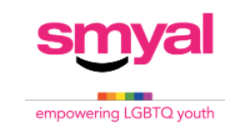This June, it is our honor to highlight Major Donor, Lisa Brown.
Lisa is an active member of the SMYAL Board of Directors. Since 2013, she has served as the chief legal counsel to Georgetown University as Vice President and General Counsel. Prior to joining Georgetown, Lisa served as the first White House Staff Secretary in the Obama White House.
What brought you to SMYAL?
Ari Shapiro, a wonderful friend, invited me to a dinner at his home to learn about SMYAL. I have a gay 17-year-old son, who is the light of my life. He wants for nothing, most importantly having parents who love and support him, who see his homosexuality as just who he is, the way my heterosexuality is just who I am. While our country has made immense progress, I still see too many young people who can’t be themselves at home or, worse, are kicked out of their homes. Everyone deserves a loving and supportive community, especially when they are young and figuring out who they are and becoming who they were meant to be. My son and I both want to give back and to do what we can to help young people who are not as lucky as he.
What inspired you to get involved with the organization at a deeper level as a major donor and board member?
SMYAL — and really Sultan and Adalphie — appealed to my head and my heart. They described SMYAL’s thoughtful work with LGBTQ youth, the housing program, and now Little SMYALs, and then a young person spoke personally of what SMYAL had meant in their life as they transitioned. I was taken by the passion and positive energy — this is not a group that wastes time bemoaning the state of affairs; instead, they focus on building the confidence of LGBTQ youth and supporting their development into advocates for change, all with lots of smiles and humor. That they do this focusing on the DC region, where I grew up and still live, was also important to me.
 You have served in senior roles in two presidential administrations, including as Staff Secretary to President Obama and Counsel to Vice President Gore. Can you tell us what those experiences were like? Do you have a story or two that you can share?
You have served in senior roles in two presidential administrations, including as Staff Secretary to President Obama and Counsel to Vice President Gore. Can you tell us what those experiences were like? Do you have a story or two that you can share?
It was an honor and privilege to work for both President Obama and Vice President Gore. Both men care deeply about the people of this country, treating everyone equally, and, in President Obama’s words, bending the arch of history towards justice. Of course, there were the fun things like flying on Air Force One and visiting Camp David, but what I valued the most was being part of a team that was wrestling with deeply difficult issues and working to enact policies that would help Americans, all Americans.
It’s hard to pick just a few to highlight, but I’ll mention several that meant a great deal to me personally. I remember being with President Obama when he signed the executive order banning torture, and when he signed the Affordable Care Act. I was part of meetings where President Obama asked tough questions about the Administration’s position in litigation challenging the Defense of Marriage Act and ultimately decided to stop defending the statute. I remember helping to prepare then-Supreme Court nominee Sonya Sotomayor for her confirmation hearings, and working with colleagues to enact DACA (Deferred Action for Childhood Arrivals).
You have an extensive legal background, are there any Supreme Court cases that you are closely monitoring, especially that impact the LGBTQ community?
There are two sets of cases that I am watching particularly closely. The first is a set of cases asking whether the prohibition in Title VII of the Civil Rights Act of 1964 against employment discrimination “because of . . . sex” encompasses discrimination based on an individual’s sexual orientation — i.e., whether it is unlawful to fire an employee due to their sexual orientation or gender identity. If the protections of Title VII mean anything, they should mean that you cannot be discriminated against in the workplace because of who you love or how you identify. The second is the suit challenging DACA, as we have a number of undocumented students on campus at Georgetown where I work. The young people able to learn and work in this country due to DACA have never known a home other than the United States and contribute immeasurably to our communities and society.
Working in higher education, what challenges are students and recent graduates facing in this new world?
This is a time of tremendous challenge for all of us, as we wrestle with the emotional and economic impact of COVID-19 and the societal inequities it is laying bare, and continue struggling with the raw racial divisions that still exist in this country and will continue until we can have honest conversations about the legacy of slavery, Jim Crow and segregation that underlie institutional racism. Students have been adjusting to virtual learning and distance from their friends, while new graduates face a very uncertain work world, with jobs harder to come by or put on hold. Both are often living back home with families when they expected to be living independently.
I am dismayed by those who foster partisan divides at a time when this country needs all of us working together to counter these deep challenges. This time calls on the best in each of us, asking for patience, compassion, and a commitment to our communities and the common good. I am hopeful that the activism of this generation of college students and graduates will cause us to reckon with climate change and all forms of inequality, and move this country towards its vision of a more perfect union. We are counting on them.




